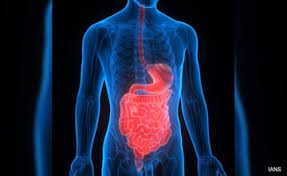Berlin, Germany – A recent breakthrough in medical research has shed light on a significant genetic factor that heightens the risk of colon cancer in patients with ulcerative colitis (UC). Published in Science Advances, the study conducted by researchers from the Berlin Institute for Medical Systems Biology (MDC-BIMSB) and Charite–Universitatsmedizin has identified a critical role for the p53 gene in the development of UC-related colon cancer.
Ulcerative colitis, a chronic inflammatory bowel disease, impacts approximately five million people worldwide. It is known to elevate the risk of developing colon cancer, particularly due to the way it affects certain cells in the large intestine, specifically within tube-like structures known as “crypts.” These crypt cells, essential for repairing the intestinal lining, shift into a “regenerative cell state” after tissue injury. However, in UC patients, the cells often remain stuck in this repair mode, unable to restore normal function—a defect linked to the p53 gene mutation.
In UC patients with an inactive p53 gene, crypt cells remain in a constant proliferative state, according to study co-author Professor Michael Sigal. “If there is no p53, cells remain in a proliferative state,” Sigal explained. This abnormal cell state leads to an accumulation of aberrant cells, heightening the risk of cancer development. The findings pave the way for a potential therapeutic approach targeting these cells before cancer manifests.
The implications for UC patients are promising, as current tests like colonoscopies primarily detect visible precancerous lesions. These lesions, however, can be challenging to remove completely, leaving patients at risk of cancer progression. “In patients with ulcerative colitis who are at high risk for developing cancer, we could potentially target aberrant cells and get rid of them early, before any cancer occurs,” added Sigal.
This study opens a path toward a less invasive diagnostic test, potentially based on molecular markers of p53 functionality. Researchers are now investigating methods to pinpoint cells with defective p53 genes more accurately within colon tissue, with the hope of offering a preventive approach that may reduce the need for extensive screenings and invasive procedures.
With these findings, scientists aim to develop targeted therapies that would benefit UC patients globally, marking a significant advance in understanding the mechanisms underlying UC-related colon cancer risk. The research team is preparing for further studies to validate these results in broader human populations, potentially leading to groundbreaking treatments that could transform the management of UC and its associated cancer risks.











